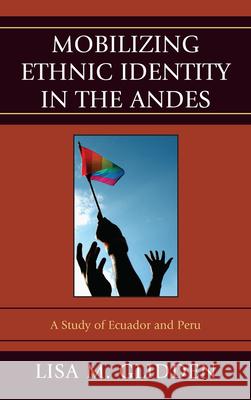Mobilizing Ethnic Identities in the Andes: A Study of Ecuador and Peru » książka
Mobilizing Ethnic Identities in the Andes: A Study of Ecuador and Peru
ISBN-13: 9780739186282 / Angielski / Miękka / 2013 / 146 str.
Mobilizing Ethnic Identities in the Andes: A Study of Ecuador and Peru
ISBN-13: 9780739186282 / Angielski / Miękka / 2013 / 146 str.
(netto: 193,52 VAT: 5%)
Najniższa cena z 30 dni: 202,78
ok. 30 dni roboczych
Bez gwarancji dostawy przed świętami
Darmowa dostawa!
Mobilizing Ethnic Identity in the Andes examines why some groups choose to organize themselves based on ethnic identity, that is, why ethnic identities are mobilized and politicized by some populations and not others. It demonstrates that the mobilization of ethnic identity is a political choice, and it is not necessarily the first or natural choice of a group of people who have grievances with their government. The book provides an argument as to when that choice to mobilize an ethnic, as opposed to some other type of identity, is made by looking at Indigenous populations in Ecuador and Peru. It asks the question under what conditions are ethnic identities mobilized to address grievances? The argument put forward in this book is that ethnic identity is not an automatic "go to" identity on the part of movement activists or potential members. Movement leaders build a collective identity through consciousness-raising and meaningful framing of symbols. They also shape or take advantage of opportunities to advance the claims and grievances of the community to a broader audience, at least some of whom endorse the validity of the movement. Ethnic identities are then politicized by the ways in which the community interacts with others in the political system, and with the system itself.











